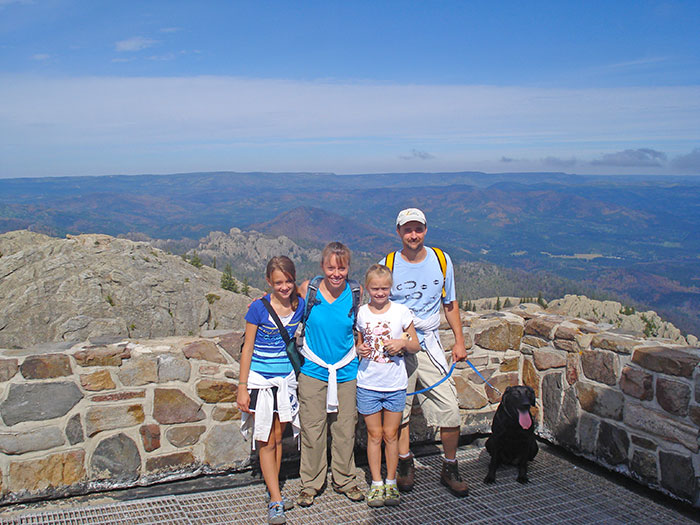
Ritch Nelson has come a long way since his days growing up on a dairy farm in northeast Boone County, Nebraska.
"(That) set the stage for my interest in the outdoors, wildlife and agriculture," Nelson said. "Initially, I had dreams of being a veterinarian, which evolved through high school into an interest in natural resources."
While in high school, Nelson took every science class available.
"That included helping teach freshman biology during my senior year," he said.
When Nelson came to UNL, he considered declaring an emphasis in forestry. But after a semester or two of classes, he decided the fisheries and wildlife option was a better fit.
Throughout college, Nelson worked summers for the Nebraska Game and Parks Commission.
"That was a dream I had since early in my high school years," he said. "Ultimately, however, my goal was to move to Wyoming and work with big game."
Serendipitously, following his graduation in May 1992, a position opened up at the Wyoming Game and Fish Department. He was selected to finish a mule deer winter range analysis that another biologist had started.
"It was a great experience – living at a Game and Fish wildlife area without electricity or running water for a few months and completing field work every day on the sagebrush steppe," Nelson said.
However, he soon realized that such isolation wouldn't satisfy the "people person" part of his personality. Nelson began to seek a career where his expertise in both agriculture and wildlife would overlap, and where he could interact with more people on a daily basis.
"Two of my college friends were working for Wyoming Game and Fish Department in a 'new' endeavor where they designed and implemented habitat projects one-on-one with farmers and ranchers on their private land," Nelson said. "In my communication with them, it was apparent that this was a suitable niche for me that tied together my farming background, working with people and was focused on habitat management, which was my primary interest."
When one of his friends accepted another job, Nelson was selected to take his place. He worked in that position for two years before moving on to the Nebraska Game and Parks Commission in Alliance, where he served as district habitat manager for eight years.
In 2003, Nebraska's state wildlife biologist position with the Natural Resources Conservation Service (NRCS) was vacated. Nelson applied, got the job and has been there ever since.
Networking has been a critical component of his career advancement, Nelson said.
"It is interesting to reflect that many of the positions I have held came about as a result of previous connections," he said. "My current job with NRCS is likely tied back to some extent with the fact that I worked for Jerry Jasmer, my predecessor, during my senior year of college."
In addition to networking, Nelson said that he advises current SNR students to be as involved as possible during their time at the university.
"If you are absolutely sure you want to work in this field once you graduate, do everything you can from today to the day you land that first permanent job to make that happen," he said.
Looking to the future, Nelson said he feels more than prepared for wherever his professional path may lead.
"I enjoy my current position and have had new challenges along the way to keep it interesting," he said. "I look at my professional career as having stages – in some respects, you think you have 'arrived' at a certain point and then you meet new challenges and strive for the next stage in your career. I feel like my experiences at UNL were excellent in terms of preparing me for a career in natural resource management."
— Mekita Rivas, Natural Resources